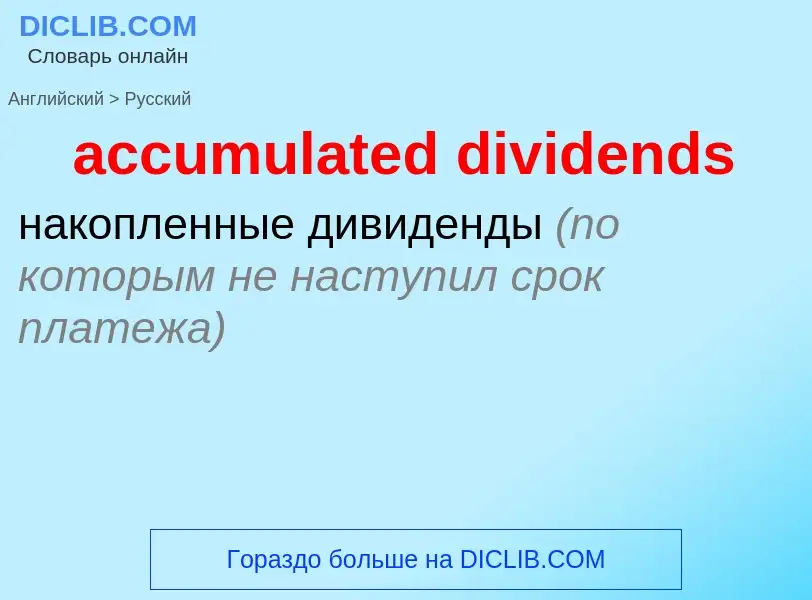Traduction et analyse de mots par intelligence artificielle ChatGPT
Sur cette page, vous pouvez obtenir une analyse détaillée d'un mot ou d'une phrase, réalisée à l'aide de la meilleure technologie d'intelligence artificielle à ce jour:
- comment le mot est utilisé
- fréquence d'utilisation
- il est utilisé plus souvent dans le discours oral ou écrit
- options de traduction de mots
- exemples d'utilisation (plusieurs phrases avec traduction)
- étymologie
accumulated dividends - traduction vers russe
['plau'bæk]
общая лексика
запахивать
превращать в капитал
фразовый глагол
общая лексика
превращать в капитал
капитализировать (прибыли)
Définition
Wikipédia
A special dividend is a payment made by a company to its shareholders, that the company declares to be separate from the typical recurring dividend cycle, if any, for the company.
Usually when a company raises the amount of its normal dividend, the investor expectation is that this marks a sustained increase. In the case of a special dividend, however, the company is signalling that this is a one-off payment. Therefore, special dividends do not markedly affect valuation or yield calculations, unless the amount is large—in which case they do markedly affect valuation as they are a direct and large depletion of the assets of the company. Typically, special dividends are distributed if a company has exceptionally strong earnings that it wishes to distribute to shareholders, or if it is making changes to its financial structure, such as debt ratio.
A prominent example of a special dividend was the $3 dividend announced by Microsoft in 2004, to partially relieve its balance sheet of a large cash balance. A more recent example of a special dividend is the $1 dividend announced by SAIC (U.S. company) in 2013, just prior to it splitting off its solutions business into a new company named Leidos. Subsequently, in 2020 NortonLifeLock Inc (NASDAQ: NLOK) paid a $12/share special dividend as part of its goal to return the after-tax proceeds from the sale of its Enterprise Security assets to Broadcom.



